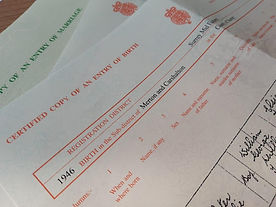
What Happens When a Death is Reported to a Coroner?

In some cases, when a death occurs under certain circumstances, it may be reported to a coroner. Understanding this process is essential during these challenging times. Here's a step-by-step guide to help you navigate what happens when a death is reported to a coroner in the UK.
Step 1 - Contact the Coroner's Office
When a death is reported to a coroner, the first step is to contact the local coroner's office. Coroner contact information can usually be found online or in local directories. Explain the circumstances of the death to the coroner's office, and they will guide you on the next steps.
Step 2 - Post-Mortem Examination
In cases reported to a coroner, a post-mortem examination may be required to determine the cause of death. The examination is typically carried out by a pathologist. The coroner's office will arrange this, and you will be informed of the details.
Step 3 - Inquest or Investigation
Based on the findings of the post-mortem examination, the coroner may decide to hold an inquest or further investigation to determine the cause of death. During this process, the coroner will gather evidence, including medical reports and witness statements, to establish the circumstances surrounding the death.
Step 4 - Registering the Death
Once the coroner has completed their inquiries and established the cause of death, they will issue the necessary paperwork, including the Medical Certificate of Cause of Death. You can then use this certificate to register the death with the local registrar's office.
Step 5 - Obtain the Death Certificate
After registering the death, you'll receive a Death Certificate, which is vital for various legal and administrative purposes. It's recommended to request multiple copies as needed for tasks like arranging the funeral, settling the deceased's estate, or notifying government agencies.
Step 6 - Notify Relevant Authorities
As with any death, it's essential to notify relevant authorities and organisations after registering the death, including:
-
Banks and financial institutions
-
HM Revenue and Customs (HMRC)
Keeping these entities informed ensures that the deceased person's accounts, benefits, and responsibilities are properly managed.
Understanding the process when a death is reported to a coroner helps you navigate this challenging situation with clarity and compliance with legal requirements.